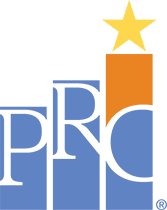In 2016, global tech ethnographer Tricia Wang spoke at TEDxCambridge on “thick data”—the precious, unquantifiable insights gleaned from speaking with actual people. That same year, Wang revisited a Medium article detailing how ethnography is the key to making big data—the hottest commodity across nearly every industry—both pertinent and practical. Ethnography, she explains, allows the researcher to take advantage of relative immersion to gain thick description of the big data often uncovered by other forms of research. By leveraging thick data through ethnographic research, healthcare leaders gain insight into not only patient scores, but also employee and physician perspectives. Completing an ethnographic study may sound like a job for Indiana Jones, but the reality is much simpler than many leaders realize.
Ethnographers, like all anthropologists, study the “why” behind human behavior. Unlike other anthropologists, however, ethnographers fully immerse themselves in a specific culture, dedicating their study to experiential learning. Historically, this was limited to studying non-western cultures, but the field has since evolved to include studies of all kinds, recently expanding into healthcare.
Each workplace and industry contains its own culture, a unique mood which shapes the thoughts and actions of its employees. What if you could study your own hospital as closely as the ethnographers learning more about the behaviors of others? Using the same careful methodology which has taught us so much about foreign cultures, PRC’s Excellence Accelerator® offers a Patient Experience Ethnography Study, documenting every aspect of your organization’s specific patient experience through comprehensive observations and focused patient interviews.
What exactly is ethnography and how is it different than any other survey?
Unlike other forms of behavioral research, ethnography relies purely on observations rather than self-reported measures. This methodology bridges the reality gap as it allows hospital leaders to understand work as it is done, not work as it’s imagined. Ethnography research also includes theoretical analysis and interpretation of those data. Brooke Billingsley, our resident ethnographer and Excellence Accelerator® coach, brings to life PRC’s founding principle to not just hand over data, but coach you through how to analyze, interpret, and effectively act on your research.
Are ethnographic studies inherently biased?
Because ethnography analyzes the social and cultural organization of everyday life, we must consider the researcher’s perspective when interpreting the results. That’s why it’s important to have an expert like Brooke performing your ethnographic research; she has the healthcare background to acutely understand the complexities of the hospital setting and identify the difference between the ordinary and the extraordinary. Qualitative research has a natural bias (seen often in self-reported measures), but with practice, experts can mitigate and minimize that bias.
How long does an ethnographic study take?
Because ethnography relies on immersion, not n size, our Excellence Accelerator® studies are done over the course of a few days. What’s important to ethnography in relation to time spent in the field is dedication to fully understanding the subjects and their context. Brooke has experience doing exactly this, knowing how long she needs to stay “in the field” in order to speak with all the necessary people to gain an accurate understanding.
In a 2018 issue of BMJ Quality & Safety, Cupit, Mackintosh, and Armstrong explain time as a component of ethnographic research, stating, “There is certainly no reason why time alone should determine the usefulness of any ethnographic work…for ethnography, what may be important in relation to time spent ‘in the field’ may include the ability to achieve immersion in the setting and engaging with less powerful voices in order to better understand context.”
Hundreds of hours of research are important in many fields, but rapid ethnography in healthcare improvement typically does not require such an investment of time.
What sort of problems can an ethnographic study uncover?
In The Journal of Educational Evaluation for Health Professionals, Goodson and Vassar outline the various uses for ethnography, such as defining a problem when the problem is not yet clear, defining a problem which is embedded in multiple systems, and clarifying the range of settings where a problem currently occurs when not all of the possible settings are fully known.
Put another way, ethnographic research handily untangles issues which are woven around multiple sources, which is often the case in healthcare settings. For example, there are a host of reasons why nurses could leave dropped pens on the floor (Are they too overwhelmed to notice? Are they so frustrated with other departments they leave it there as a passive aggressive statement? Are they afraid that if they pick up the pen and put it in the wrong place, they’ll face extreme consequences?). An ethnographer can expertly determine the underlying cause.
Further, ethnographic research allows hospitals to conduct studies which may be otherwise stalled or limited by budget and time constraints. Performing a deep dive mixed mode study can be very rewarding for organizations, but these are also more costly in both time and resources than a few days of observational research.
Is my organization a good fit for ethnography?
If you’re struggling with differences in how you believe you are performing with your patient experience strategy and how patients evaluate your experience, ethnography can establish clarity. Additionally, if you’re seeking to improve patient perceptions of
-
- Teamwork
- Safety
- Doctor or Nurse Communication
- Responsiveness
An ethnography study can give you specific observable insight to drive your improvement efforts and close gaps in performance.
How can I expect to use my ethnographic research?
Ethnography is inherently not used for drawing generalized conclusions. Rather, it relies on drawing specific conclusions about the specific group that was studied, allowing our coaching team to formulate recommendations as specific as possible to your hospital. These personalized insights are only part of what Excellence Accelerator® can uncover; please reach out for more information.
Sources and Further Reading:
An overview of ethnography in healthcare and medical education research
The human insights missing from big data
Using Ethnography to study improving healthcare: Reflections on the ‘ethnographic’ label


